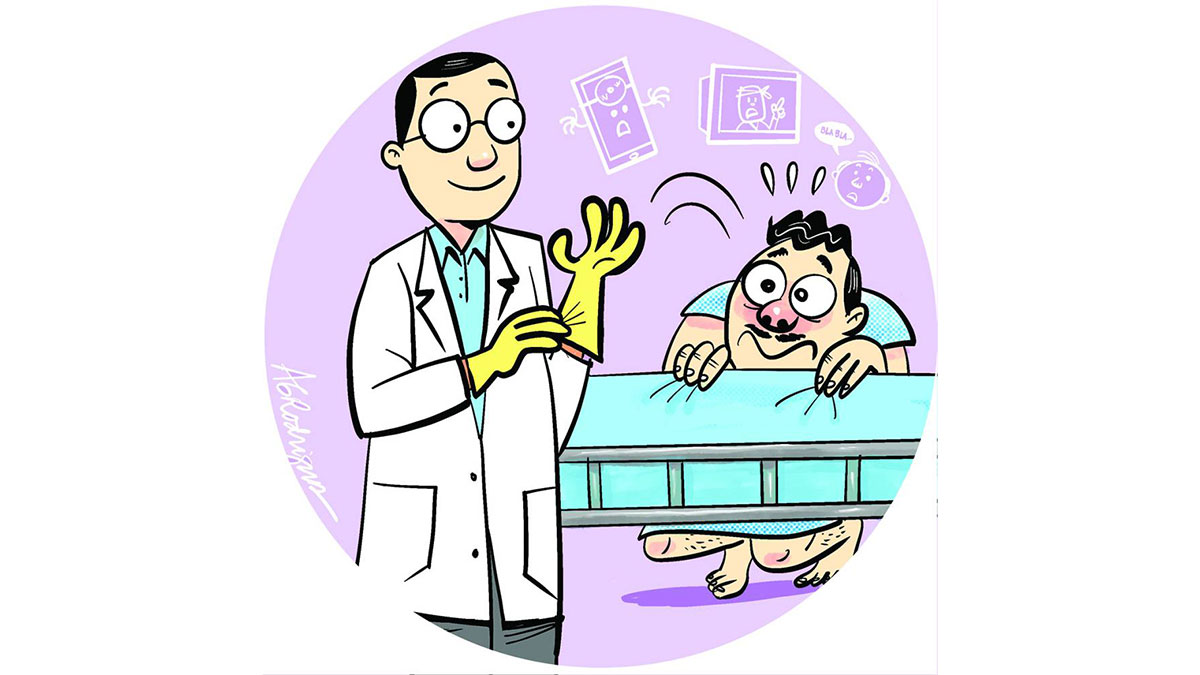More than a year ago, an elderly patient we’ve been treating for years for high blood pressure and diabetes suddenly fell unconscious in the bathroom.
The wife became alarmed when, in the bathroom for quite some time, he did not respond when she called him. Forcing the door open, she found him unconscious on the floor.
He suffered acute stroke. He survived, though half of his body remains paralyzed to this day.
Last week, this patient came to mind when our Lifestyle editor asked me why some people develop heart attacks or strokes (brain attack) while taking a bath.
Is it just coincidental or is there something in the bathing process that could trigger these potentially serious complications?
Is there a proper sequence of bathing, like wetting the limbs or feet first, followed by the body, then the head? Can a cold shower trigger a stroke or heart attack? These are very interesting and important questions.
Not the bathing
Let me digress and stress that, in many instances, it’s not the bathing but the straining during bowel movement which can trigger a stroke or heart attack in the bathroom.
Our patient’s last recollection before he passed out was that he was straining hard to pass out his stools.
As far as I could gather from our private practice, we have more patients developing a heart attack or stroke while exerting effort in the toilet, rather than taking a bath.
When one strains, when one is constipated, for instance, one holds down one’s breath and bears down excessively—which is called a Valsalva maneuver.
This increases the abdominal pressure and helps force out the stools.
But this action is also very stressful to the heart and the circulatory system, as it increases the pressure inside the chest, thus reducing the blood flow to the heart.
The pumping of the heart slows down, and the amount of blood being pumped up to nourish the brain decreases.
Some faint (syncope) as a result.
To make matters worse, the sudden release of the straining motion abruptly increases the blood pressure, and in those with uncontrolled blood pressures, it might cause some arteries in the brain to burst (intracerebral hemorrhage due to sudden increase in blood pressure).
So, excessive straining while moving one’s bowels is a relatively more common trigger of heart attack or stroke in individuals at risk, than the bathing process itself.
That’s why chronic constipation has been linked to a higher risk of cardiovascular events (heart attack, stroke, sudden cardiac death).
Slipping in the bathroom
Some elderly and frail individuals slip in the bathroom. When they hit their heads, they suffer bleeding in the brain (subdural hemorrhage).
Therefore, one must take precaution—use bath bench or stool, don’t remain standing. Have grab bars installed on the bathroom walls. Spread out bath mats with suction cups to cover slippery surfaces.
Water temperature
How about the water temperature and sequence of bathing? If one does not have any heart or blood-vessel problem, even ice-cold showers should not pose any problem, and based on scientific evidence, it does not matter which part of the body one wants to wet first.
Some cultures in Europe advocate an occasional quick dip in freezing-cold water during winter to “wake up the nerves” and improve vitality. Even the elderly do it.
I tried to go through the literatures and find out if there are any adverse events attributed to it, and I found no report.
Individuals with a history of heart problems or stroke are advised to use lukewarm water to bathe, and to prevent chilling during and after taking a bath.
Chilling can cause the arteries to constrict and prevent blood flow to vital organs like the heart and brain. So, it’s best to avoid chilling at all times.
For most of us without significant health issues, our body has an excellent compensatory mechanism to make the necessary adjustments to changes in temperature for a reasonable period, and that can easily be done by our bodies during bathing.
Overexposure to the cold or heat for prolonged period is, of course, another story.
But is there something wrong if we wet our feet first and gradually go up the body when we bathe?
I don’t see anything wrong with that practice, too, but there is no scientific data to recommend it either. I find it more as an instinctive reaction when bathing in cold weather without any water heater.











































